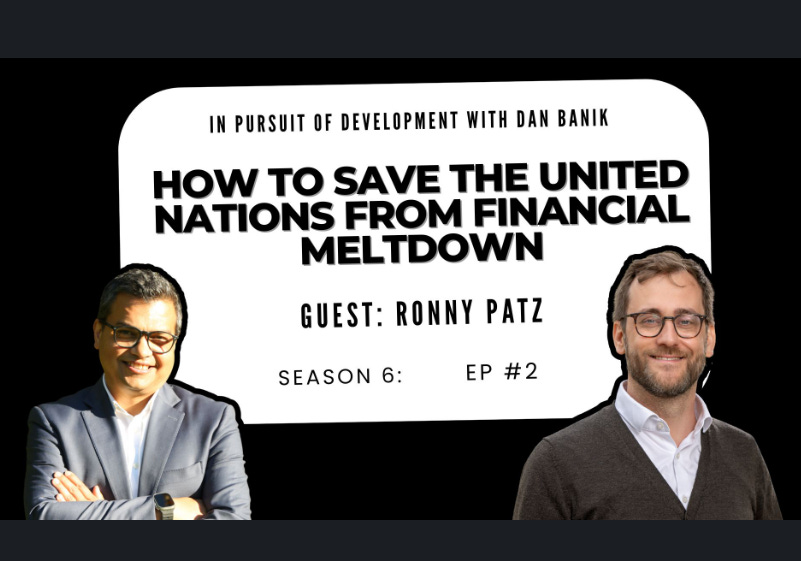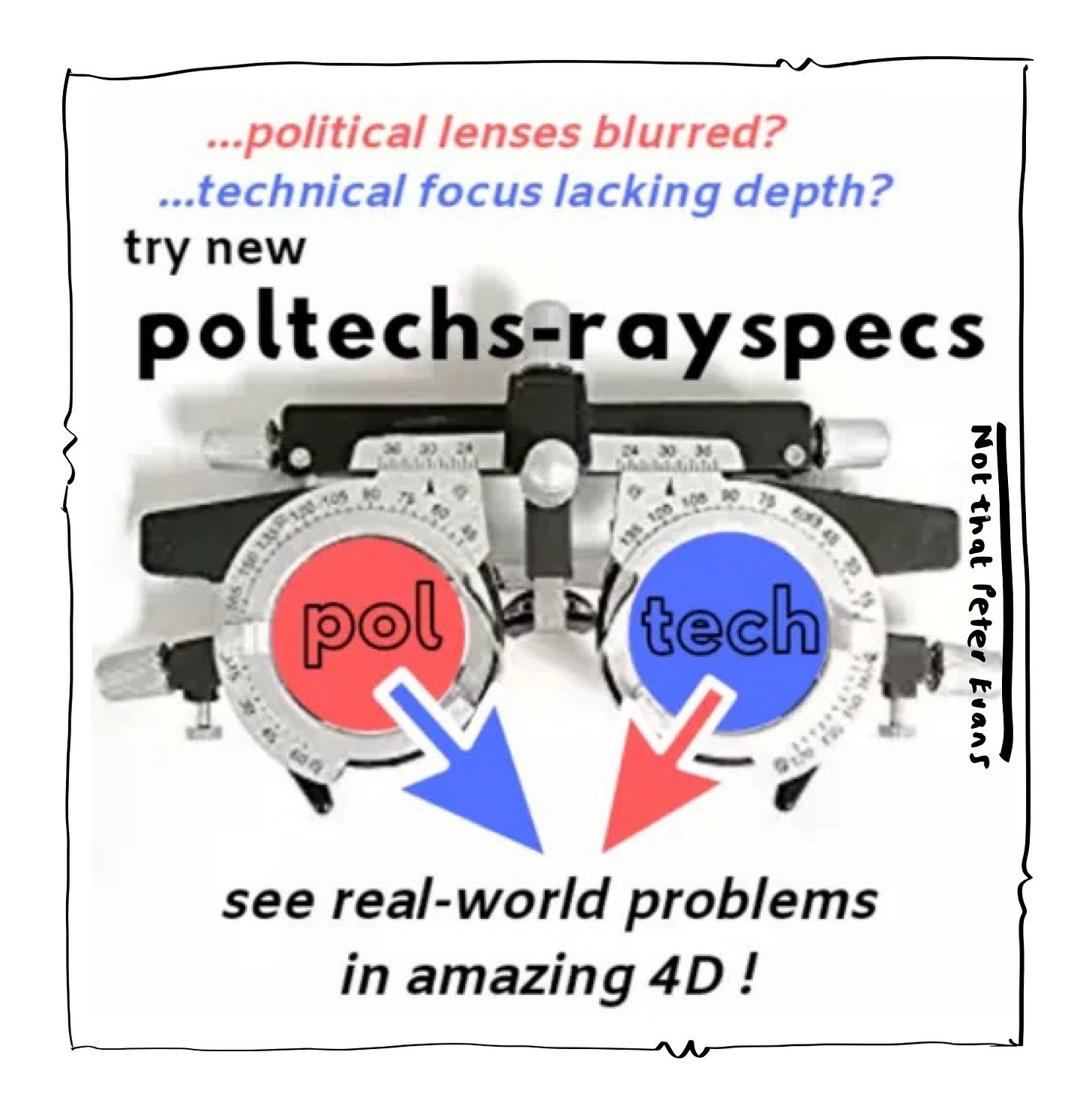Finally understanding the practical politics of the UN system (2 decades too late)
I don't usually write a blog about a podcast but this one reminded me how my understanding of the world was jolted when I started wearing glasses (aged 18). 4D vision!
This is a ‘must listen’ from Dan Banik and Ronny Patz in a warm but ‘hard truths’ conversation on the brilliant In Pursuit of Development podcast.
I think it offers most of what you needed to know about the UN system but were afraid to ask. Or didn’t know that you didn’t know.
Link here.
Reflection:
For anyone who has ever worked with or in the UN system, loved it, hated it, moaned and b*tched about it (me) while still putting funds into it for special side projects and trust funds, this is an essential orientation, though sadly comes several decades too late for me.
Ronny gives a warm but eye opening tour through how the UN system has evolved and operates, how functions creep and duplicate, how staffing and budgets bloat, and then get yanked back, or kept on the tight leash of funds committed but not released.
I’m sure that many of us have war stories and battle scars about working in/with UN agencies - and being a half glass empty kind of person, I know that I neglect the successes. For which I am sorry.
However…., Ronny Patz helps explain why these scars occur (my own include the UN wanting to do anti corruption but legal departments forbidding any mention of politics; a UK funded project that included 2 UN agencies in which they insisted that the budget had to be split exactly 50:50, down to the last penny - and neither would budge on budget).
In hindsight: if only we had spent slightly more time on ‘International Political Administration’ (i.e. understanding the governance and political economy of the UN system and trying to improve it - as we do with country systems) rather than using it as an ever expanding Rube Goldberg project machine...
Open Political Economy Analysis - of the UN system(s)
Reading between the lines - and for someone who looks at the world through political economy spectacles - this warm and balanced conversation includes the skeleton of practical Political Economy Analysis (PEA) of the UN system of systems - the players (inside and out), their interests and incentives, the formal rules and the helter-skelter free-for-all informal realpolitik that shapes the behaviour on all sides, and a great big serving of the crashing state of play.
Ronny touches on previous attempts to understand the ‘ecosystem of Geneva’ (which sounds worth replicating); the realpolitik of salaries and benefits (everyone demands change while wanting things to stay the same - I see the same pattern in surviving allowance cultures in country government systems), the entrepreneurs within UN agencies and the incentives to grow and diversify, never shrink or rationalise; and the often undervalued ‘emotional labour’ of international bureaucrats.
There is a stark warning of the immediate implications of the budget crisis - such as Peace Keepers currently deployed by governments that may not be reimbursed for their efforts because there are no funds. Deploying peace keepers has been an important ingredient in the national political equilibria and stability of some countries that I care about - Bangladesh for one - and the unravelling of the global opportunities for peace keepers could have local consequences, and not just in the conflict affected states.
I wish that I could end on a high note and some practical propositions - but we need more of thinkers like Ronny Patz for that. I hope he keeps doing this work!
If you already read the short version of this post on Linked in - sorry! Normal service will resume shortly.



